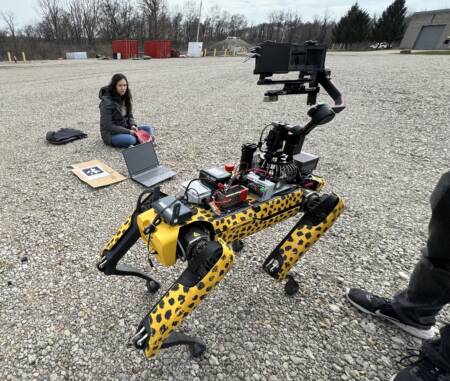
Every second matters to emergency medical teams as they approach a mass casualty event and identify who needs immediate treatment. Breakthroughs in medical triage using robotics, artificial intelligence, drones and advanced sensing could save lives by directing medical personnel to people most in need of treatment.
Team Chiron, made up of researchers from Carnegie Mellon University and the University of Pittsburgh, is developing noninvasive, remote-detection systems for injury assessment as part of the Defense Advanced Research Projects Agency’s (DARPA) three-year, $7 million DARPA Triage Challenge. Team Chiron will use an aerial drone and several ground robots equipped with multimodal sensor packs to evaluate the severity of injuries on mannequins and human actors.
DARPA is hosting the challenge to push advancements in medical triage. Teams from across the world are building robotic systems that can detect injuries in a mass casualty event and determine their severity using data captured by sensors on autonomous systems. The DARPA Triage Challenge consists of three rounds of competition in three categories: systems, virtual or data.
In the first competition, members of the team will control aerial and ground robots that survey the scene of a mass casualty event. In the second- and third-year challenges, the robots must act autonomously. Throughout the competition, Team Chiron will benefit from CMU’s prior participation in the DARPA Subterranean Challenge, where CMU made autonomous robots that mapped and searched underground environments such as mines, cave networks and urban infrastructure, said John Galeotti, a senior systems scientist in the RI.
Each team is tackling research questions about how to best use robotics, AI and other technologies to assess and identify the severity of injuries. At the end of the three-year competition, Galeotti said, researchers will know how to better tackle the problems of medical triage.
The full story on Team Chiron and information on its sponsors, partners, and how to get involved is available on the SCS website.
For More Information: Aaron Aupperlee | 412-268-9068 | aaupperlee@cmu.edu